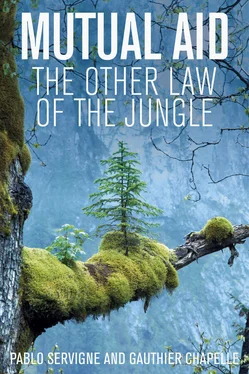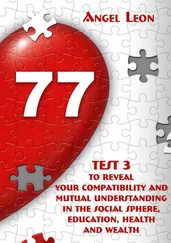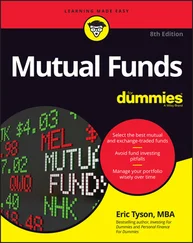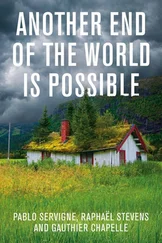Besides the fact that Kropotkin wrote a fundamental book, his story is illuminating, because it explains why our society has been so persistent in its blindness. It plunges us into the grand narratives of our society, its founding myths, the stories we tell ourselves so often that they become obvious and then invisible.
Ever since the end of the Middle Ages and the beginning of modernity, our society has become accustomed to consider competition as ‘natural’ and cooperation as ‘ideological’. Philosophers and scientists of the Enlightenment were imbued with this image of a ruthless nature, ‘red in tooth and claw’, 55from which human beings had to free themselves if they were to found a society. 56For them, we could only do so thanks to our thoughts, our minds – our genius. We had to flee nature or master it. 57The adjective ‘wild’ ( sauvage ) also became synonymous with ‘aggressive’, ‘indomitable’ and ‘asocial’ (we never call anyone ‘wild’ if we wish to emphasize their qualities of altruism or solidarity).
Nowadays, this belief that nature in general (and therefore the nature of human beings) is bad finds expression in the form of mathematical equations describing the behaviour of that imaginary, rational and selfish being Homo œconomicus , or in the speeches of political leaders, as when former British Prime Minister Margaret Thatcher said in 1987: ‘There is no such thing as society.’ 58She saw our social life as a fabric of links based solely on individual responsibilities, where acts of mutual aid are possible, but only if they are the result of individual effort.
This worldview is based on two particularly stubborn myths. The first sees aggression, war and competition as the ‘normal’ state in nature, a condition that has been elevated to the sole ‘law’. According to this conception, living creatures are ‘gladiators’ permanently having to fight in a ruthless arena where, as Thomas Henry Huxley thought, no quarter is ever shown. In economic terms, this is the contemporary model where selfish, calculative individuals are in constant competition.
The second myth is quite close to the first: it tells us that we should free ourselves from nature. Indeed, it is this worldview – one that Europe adopted in the seventeenth century – which created the very concept of nature to describe precisely what is not human. There is a separation between nature and culture, and between body and mind: the human beings of the Enlightenment become convinced that they are distinguished from ‘non-humans’ by their subjectivity, their reflexivity, their symbolic language and their mind.
To explain the persistence and power of this tenacious belief, the philosopher Jean-Claude Michéa invites us to go back to the endless wars of religion that Europe underwent in the Middle Ages. The political philosophers of the seventeenth century (including Locke and Hobbes), weary of these conflicts and despairing of human behaviour, invented a political framework for a minimal ethic – a framework that was as neutral as possible, did not require the intervention of any religion or morality, and made it possible for us to live together without killing each other. Thus, liberalism was born. 59
According to Michéa, this political doctrine took shape by imagining a human nature that was dark and selfish, and, by extension, aggressive and bloody. The (quite logical) consequence was to believe that only a human organization as powerful as the state could allow us to collectively escape this ‘wild’ world, and that only the market (neutral and protected by the state) could allow us to meet the needs of all by giving free rein to our selfish impulses. These beliefs have obviously shaped the whole of Western ideology, dominated by what the sociologist Alain Caillé calls the axiomatic of interest. 60
All of this did not happen overnight. At the start of the Industrial Revolution, British Victorian society brutally imposed its capitalist mode of production on much of the world, and sought a theoretical justification for its main driving forces: individualism and competition. The biological theory of natural selection, co-discovered by Darwin and Alfred Russel Wallace, came at just the right time, and the most influential intellectuals of the period hastened to interpret it in line with their own ideological ends.
It is interesting to note that the two kinds of liberalism (the left and the right) drank from the same source. The right, spurred on by the influential English philosopher and sociologist Herbert Spencer, tended to focus on the themes of competition, the struggle for life, the cumulative transmission of advantages and the elimination of the less able, in order to defend a minimal state and justify a ‘laissez-faire’ approach that benefited the rich and powerful, abandoning the weak under the pretext that they led to a degeneration of society. This is what is misleadingly known as ‘Social Darwinism’. 61
The left, including figures such as Darwin’s great friend and defender the biologist Thomas Henry Huxley, justified the creation of a strong state that could – by means of law – moderate this bitter struggle. Huxley was convinced that any human society that followed the ‘natural’ way of the ‘survival of the fittest’ (as people on the right thought) would necessarily evolve towards chaos and misfortune.
The idea that the human brain has no innate traits (the theory of the blank page) and that individuals use their minds to make choices regardless of biology (the theory of the ‘ghost in the machine’) is still deeply rooted in today’s humanities. But the latest discoveries in cognitive science and evolutionary psychology are a game changer. 62Surely the biology of our species and its behaviour (the formation of couples, the role of hormones, adoption, the ontogeny of the smile, olfactory communication between mother and baby, etc.) should constitute an illuminating discovery for the human sciences? Conversely – and this is the tragedy of the compartmentalization of scientific disciplines – the biological sciences often scorn the subtlety and complexity of the age-old debates on human nature in the social sciences. The result is a dialogue of the deaf.
The myth of a separation between nature and culture has been thoroughly undermined, as evidenced by the works of anthropologists such as Tim Ingold and Philippe Descola. The latter, who studied the Achuar people in the Amazon, clearly shows that our conception of the world as separated from living beings is totally incomprehensible to them. 63As is well known, when asked the question: ‘Which, nature or nurture, contributes more to the personality?’ the Canadian psychologist Donald Hebb answered with another question: ‘Which contributes more to the area of a rectangle, its length or its width?’
Why science didn’t see it – a story of genes
It would be unfair to say that science in the twentieth century was totally blind to mutual aid and beneficial interactions between species. But it was a slow and complicated process. Schematically, we could distinguish three major periods. The first, from Kropotkin to the 1970s (including two major conflicts and the beginning of the Cold War), was marked by an accumulation of observations, but also by a cruel lack of any theoretical framework, models or experiments. The second period, which started with the gene’s ascendancy in the post-war period, led in the 1970s to the birth of sociobiology, a very controversial discipline which set itself the goal of understanding animal and human societies through the prism of genetics. The third period, which began in the 2000s, was characterized by a real escalation in the number of experiments relating to the mechanisms of mutual aid, in particular thanks to advances in experimental economics, political science, primatology and neuroscience, as well as the explosion of molecular genetics, which confirmed the long-standing omnipresence of symbiosis. The 2000s also saw the collapse of the theoretical house of cards comprised by 1970s gene-dominated sociobiology, with the emergence of a slew of mathematical and computer models which have very recently given rise to a ‘new sociobiology’, more complete, more credible and more stimulating, which we will examine in more detail later.
Читать дальше












